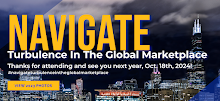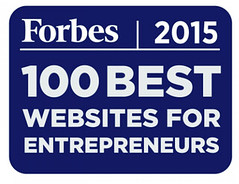 |
| Fuse/Thinkstock |
Read CNN's article here.
And most of the guidelines mentioned for expanding your business internationally have been featured in Entrepreneur magazine's Global Village column. We've covered the World Bank's website (see Easy Street, June, 2007), Export Assistance Center and U.S. Department of Commerce (Study Abroad, May, 2006) and the World Citizen's Guide (American Outcast, February, 2006) -- so we're on it!



















2 comments:
GLOBALISERS
Global Buys, Local Muscle
Five companies that have leveraged global competitiveness to capture the local market
Published in Businessworld by MANOJ VOHRA AND K. YATISH RAJAWAT
Mega deals such as Tata Steel’s acquisition of UK’s Corus grab the headlines. But far from the media spotlight, several medium-sized companies are aggressively taking on global majors on their own turf. For most, going global is a strategic necessity. As global players enter local markets, local companies must scale to international benchmarks. Here are five companies that have done this and, as a result, are likely to become global leaders themselves.
Amtek Auto
Amtek Auto was started in 1985 as a single-location unit by the late W.L. Dham and Arvind Dham in partnership with the Haryana State Industrial Development Corporation.
Despite such provincial beginnings, it seized the global auto components opportunity. It quickly brought its local plants up to global standards and today has the lowest cost structure in its industry.
That’s allowed Amtek’s net profit margin and operating profit margin to reach 19 per cent and 33 per cent, respectively, higher than those of industry leader Bharat Forge, which scores 13 per cent and 29 per cent on those counts.
CEO Arvind Dham says he is working hard to create a global mindset amongst his team. “(Managers) have to think globally”, says Dham. “We still benchmark ourselves against Marutis and Hero Hondas. We must appreciate that European and western companies think very differently”.
United Breweries
United Breweries’ Kingfisher beer has a 50 per cent market share in India. Not satisfied with that, company Chairman Vijay Mallya is going global and Kingfisher is now cooling throats in the United Kingdom and 51 other countries.
Earlier this year, Mallya made his biggest global bet, buying Glasgow-based Scotch giant Whyte & Mackay for $1.18 billion (Rs 4,838 crore). That’s made the UB Group, of which UB is a part, the world’s second-largest liquor company after Diageo. “We have chosen to invest resources in a business where we have not only clear market leadership domestically, but also global relevance,” says Mallya. The Whyte & Mackay purchase will also help UB protect its flank in India. The Indian liquor market is protected by high tariffs. But New Delhi is under pressure from the European Union to change this. Mallya’s acquisition will give UB the global brands it will need to defend its home turf when global competitors come calling. Mallya is often ridiculed as a show-off. But then he has much to brag about. UB’s net profit margin and operating profit are a robust 4.4 per cent and 15.7 per cent respectively, double those of Diageo.
Aban Offshore
Aban Offshore (formerly Aban Loyd Chiles Offshore) has had its ups and down. The company was formed in 1986, when the oil exploration market was first opened to the private sector, but the sector did not grow much. To sidestep the slowdown in India, Aban ventured into Singapore in 2004-05. It has since acquired West Africa Drilling NV and Norway’s Sinvest ASA. “Our mission is to become a significant global player in the oilfield services industry,” says Reji Abraham, managing director, Aban Offshore.
Aban’s global forays have given it competence and scale, and helped it turn into India’s biggest private sector offshore drilling company. Its net profit and operating profit margins are 17 per cent and 60 per cent, respectively, considerably better than those of its top three competitors, which have average net profits and operations margins of 12 per cent and 23 per cent, respectively.
Sabare International
Founded in 1991 by S. Susindran, a first-generation entrepreneur, Sabare has made its mark as an aggressive exporter of home textile products. The Rs 150-crore company, which is based in Karur, Tamil Nadu, exports floor coverings, bed sheets, towels, curtains and other products to the US, and counts among its customers the likes of Wal-Mart, Target and JC Penney. To cater to the increased overseas demand for its products, the company is going in for a Rs 150-crore capacity expansion. This includes an investment of Rs 90 crore in a new manufacturing unit.
The company has already established its global footprint by setting up a manufacturing facility in Atlanta, US. The facility, with 10 state-of-the-art cushion blow fill machinery lines, is one of the biggest in the US. Sabare, which already has a sourcing office in China, is also considering a manufacturing facility there. Recently, Kotak Private Equity picked up stake worth Rs 30 crore in Sabare.
Apart from its low-cost labour advantage, Sabare’s operating competitiveness as measured by its net profit margins is 8.6 per cent (against industry leader Welspun India’s 6.6 per cent).
Hexaware Technologies
Hexaware Technologies, an IT and process outsourcing services provider, has grown by focusing on profitable niches globally. When the company entered the United States’ banking and financial services market in 1995, the segment was primarily dominated by global majors. It chose to focus on the asset management industry and today, it has a formidable position in this vertical. The company has also built up competencies in the airline industry.
Hexaware now has a foothold in the US, the UK, Canada, Germany, Singapore, Japan, France, Australia and Sweden. “In software services, it is no longer possible to deliver services from just one location,” says founder and chairman Atul Nishar. “We are more nimble in doing this than our peers.”
Hexaware’s global competitiveness shows. Its net profit and operating margins are 27.86 per cent and 33.58 per cent, respectively (compared to 24.15 per cent and 29.50 per cent, respectively, for industry leader Tata Consultancy Services).
Hi, Manoj,
It's important for readers to know more about you -- especially if they wish to contact you. Thanks for reaching out to us. Very fascinating read. Please continue to share your work with us. ~ Laurel
+++++++++
Hello Laurel,
By way of introduction, I am Manoj Vohra and work with Businessworld (India’s most read and sold Business weekly) as National Head of their research services practice. My interest areas include emerging businesses, globalisation, private equity, people issues, best practices, etc.
Most recently, I was involved in a cover story on India’s emerging mid-sized businesses (and going global was one of the themes). You can read my recent articles below:
http://www.businessworld.in/content/view/2050/2115 (On globalisers)
http://www.businessworld.in/content/view/2049/2114 (On unlisted companies)
Prior to joining Businessworld, I worked with a research and advisory firm and was involved in advising several multinational companies in their India entry and expansion strategy.
I will be happy to contribute to The Global Small Business Blog and Global Trade. Do let me know if you see any merit.
Best regards,
Manoj Vohra
National Head, Businessworld Intelligence
New Delhi, India
Email: manoj.vohra@abp.in (mailto:manoj.vohra@abp.in)
Direct phone: +91 98 112 97037
++++++++++
Post a Comment